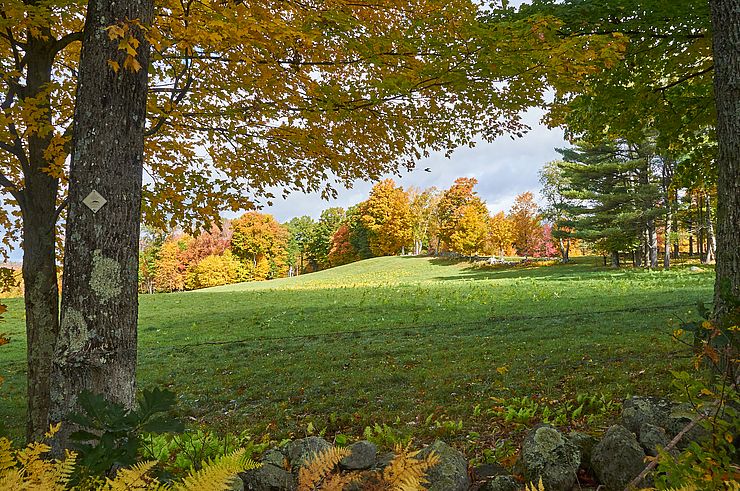Options for Your Land

Do you love your land? Perhaps you know someone who might be interested in conserving his or her farm, woodlands, or wetlands?
Land conservation gives you peace of mind about the future of your property. The Monadnock Conservancy works directly with willing landowners on permanent conservation agreements, taking into account personal needs and goals, mutually agreed upon objectives, and what’s unique about each piece of land. Here are the three most common conservation options if you’re interested in protecting forever the land you love.
Conserve Your Land and Retain Ownership
You may choose to donate a conservation easement on your property. A conservation easement, a legal agreement between you and a conservation organization (usually a land trust), limits future activities on the land to protect its natural resources. You still own and maintain the property, and it may be sold, leased, given, or inherited at any time. However, the easement is permanent and runs with the land forever, meaning that any future owner must abide by its terms. In general, our easements allow the property to continue to be used for agriculture, forestry, and recreation, but puts limits on certain development rights and intensive activities. Depending on a landowner’s financial situation, there may be tax benefits associated with granting a conservation easement. In the case of a donated conservation easement, landowners may be eligible to claim a federal income tax deduction for the value of the easement.
Donate Your Land
We can work with you to explore different options to transfer ownership of your property to the Monadnock Conservancy. Most often the property is kept as permanent conservation land. However, depending on the property and your interest, we may place a conservation easement on the land and then sell it, or sell the land without any restrictions. These latter two options may be appropriate for land that doesn’t meet our criteria for permanent acquisition, but then allows us to raise funds to support other conservation projects. A landowner who donates land may be eligible for tax benefits in the form of a federal income tax deduction, a reduced taxable estate and relief from property taxes.
Sell Your Land for Conservation
Sometimes we will purchase land or a conservation easement on land with exceptional conservation values. If you want to sell your land for conservation, you may want to consider a sales price less than the appraised fair market value, aka a “bargain sale.” A landowner who agrees to a bargain sale may be eligible for a federal income tax deduction based on the difference between the appraised fair market value and the bargain price.
Learn more
If you are interested in exploring one of the options above but would like some more detailed information, check out the Conserving Your Land Publication from the New Hampshire Land Trust Coalition. This publication will explain in depth the finer points of how land conservation works, the benefits to you, and how to get started.
Ready to have a conversation about land conservation, or want to learn more?
We welcome all inquiries. Please email Anne McBride, land protection director, or call her at 603-357-0600, ext. 102, to discuss the best options for conserving your land. All conversations are confidential.
Why I Conserved
We decided we could honor our parents and their commitment to land stewardship by making sure their land was owned forever in a way that honored our family’s legacy of forest stewardship.
— Jack Calhoun, Harrisville, N.H.